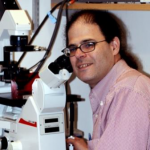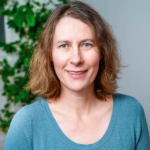Date
11/10/2022 - 12/10/2022
2022-23 CPS VIRTUAL WORKSHOP # 2
FungiDB: Hands-on training in web-based data-mining approaches for fungal genomes and associated omics data
Dates:
Day 1: Tuesday, October 11 , 2022 | 9:30 AM – 11:00 AM EST
Day 2: Wednesday, October 12 , 2022 | 9:30 AM – 11:00 AM EST
Location:
Zoom (meeting information will be shared a week before the workshop)
Introduction: FungiDB (https://FungiDB.org) is a free online resource for over 200 annotated genomes encompassing fungal and oomycete species. FungiDB is a component of the Eukaryotic Pathogen, Vector & Host Informatics Resources (VEuPathDB.org) that integrate genomic, transcriptomic, proteomic, epigenetic, population diversity, and other types of data for eukaryotic microbes (pathogenic & non-pathogenic, free-living & parasitic), and hosts and vectors of human disease. A user-friendly web interface with embedded bioinformatics tools supports in silico experiments leveraging public data and private datasets uploaded from the VEuPathDB Galaxy. With FungiDB, you can also browse genomes, mine Omics-scale datasets, annotation, and the results of automated analyses (protein domains, orthology predictions, etc.), improve gene models in Apollo and capture expert knowledge via the User Comments system.
This FungiDB workshop will combine mini lectures with hands-on learning using breakout sessions in Zoom. During the workshop participants will focus on learning about the services provided by the VEuPathDB Bioinformatics Resource Center. In particular, hands-on training in web-based data-mining approaches for fungal genomes and associated omics data will be provided. Exercises will cover both basic and advanced usage of FungiDB resources for phytopathogens, including identification of orthologs and orthology-based inference, using the genome browser JBrowse, development of multi-step in silico ‘search strategies’ and mining integrated datasets (proteomics, transcriptomics, phenotypes, variation, etc.). The workshop will also include introductions to data analysis in VEuPathDB Galaxy and Apollo (a web-based interface for improving structural and functional genome annotations).
AGENDA
All times are in Eastern Standard Time (EST)
Day 1 – Tuesday, October 11 , 2022 | 9:30 AM – 11:00 AM EST
09:30 AM Introduction to VEuPathDB resources.
09:50 AM FungiDB demonstration – Brief intro to site navigation, site search, gene record pages & search strategies, tools).
10:10 AM Guided Hands-on exercises – Site search.
10:30 AM Guided Hands-on exercises – Search strategies.
11:00 AM End of Day One
Day 2 – Wednesday, October 12 , 2022 | 9:30 AM – 11:00 AM EST
09:30 AM Guided Hands-on exercises – Search strategies, continued.
09:50 AM FungiDB demonstration – Gene record pages and JBrowse.
10:10 AM FungiDB demonstration – Apollo, a real time collaborative genome annotation and curation platform.
10:30 AM FungiDB demonstration – VEuPathDB Galaxy.
11:00 AM Questions & wrap up.
INSTRUCTOR BIOGRAPHIES
Dr. DAVID S. ROOS: https://www.bio.upenn.edu/people/david-s-roos
 Dr. Roos is the E Otis Kendall Professor of Biology at Penn, which he joined in 1989 after studies at Harvard (AB), Rockefeller (PhD) and Stanford (postdoc). His research interests focus on the molecular genetics, genomics, and evolutionary cell biology of protozoan parasites, including Toxoplasma (a prominent congenital pathogen and opportunistic infection associated with HIV/AIDS), and Plasmodium (malaria). This work has yielded genetic tools facilitating molecular dissection of parasite pathogenesis and drug resistance mechanisms, new insights into the evolution of sub-cellular organelles (including discovery of the apicoplast, a novel organelle offering attractive targets for therapeutic development), and computational algorithms and databases seeking to make genomic-scale datasets accessible to researchers worldwide. Due to the success of the VEuPathDB initiative (including FungiDB), ClinEpiDB, and other database resources, integrative data science and management has become a near full-time activity.
Dr. Roos is the E Otis Kendall Professor of Biology at Penn, which he joined in 1989 after studies at Harvard (AB), Rockefeller (PhD) and Stanford (postdoc). His research interests focus on the molecular genetics, genomics, and evolutionary cell biology of protozoan parasites, including Toxoplasma (a prominent congenital pathogen and opportunistic infection associated with HIV/AIDS), and Plasmodium (malaria). This work has yielded genetic tools facilitating molecular dissection of parasite pathogenesis and drug resistance mechanisms, new insights into the evolution of sub-cellular organelles (including discovery of the apicoplast, a novel organelle offering attractive targets for therapeutic development), and computational algorithms and databases seeking to make genomic-scale datasets accessible to researchers worldwide. Due to the success of the VEuPathDB initiative (including FungiDB), ClinEpiDB, and other database resources, integrative data science and management has become a near full-time activity.
Dr. OMAR HARB: https://www.researchgate.net/profile/Omar-Harb
 Dr. Harb obtained a Bachelors of Arts in biology from Earlham College (USA) in 1993 and a doctorate (PhD) in Microbiology and Immunology form the University of Kentucky (USA) in 1999. His graduate studies focused on understanding mechanisms of bacterial virulence in the human and environmental pathogen Legionella pneumophila. His post-doctoral work in Dr David Roos’ laboratory focused on working on the cell biology of Toxoplasma gondii and Plasmodium falciparum. Currently Omar is the director of scientific outreach and education at the Eukaryotic Pathogen, Vector and Host Informatics Resources (VEuPathDB.org), based at the University of Pennsylvania in Philadelphia, Pennsylvania, USA.
Dr. Harb obtained a Bachelors of Arts in biology from Earlham College (USA) in 1993 and a doctorate (PhD) in Microbiology and Immunology form the University of Kentucky (USA) in 1999. His graduate studies focused on understanding mechanisms of bacterial virulence in the human and environmental pathogen Legionella pneumophila. His post-doctoral work in Dr David Roos’ laboratory focused on working on the cell biology of Toxoplasma gondii and Plasmodium falciparum. Currently Omar is the director of scientific outreach and education at the Eukaryotic Pathogen, Vector and Host Informatics Resources (VEuPathDB.org), based at the University of Pennsylvania in Philadelphia, Pennsylvania, USA.
Dr. EVELINA BASENKO: https://www.liverpool.ac.uk/systems-molecular-and-integrative-biology/staff/evelina-basenko/
 Dr. Basenko is a scientific outreach and education specialist focusing on FungiDB.org. FungiDB belongs to the family of the Eukaryotic Pathogen, Vector and Host Informatics Resources that aims to integrate diverse datasets and provide researchers with tools to mine the underlying data and analyse custom data. Eve interacts with fungal communities, teaches workshops, facilitates community driven projects, answers help desk tickets, supports omics scale dataset integration and quality assurance of the integrated data, and contributes to other VEuPathDB team projects. She is based at the University of Liverpool, UK. Eve holds a PhD in Genetics from the University of Georgia. She completed her postdoctoral training in the lab of Dr Zachary Lewis where she studied the epigenetic mechanisms of genome stability in the filamentous fungus Neurospora crassa.
Dr. Basenko is a scientific outreach and education specialist focusing on FungiDB.org. FungiDB belongs to the family of the Eukaryotic Pathogen, Vector and Host Informatics Resources that aims to integrate diverse datasets and provide researchers with tools to mine the underlying data and analyse custom data. Eve interacts with fungal communities, teaches workshops, facilitates community driven projects, answers help desk tickets, supports omics scale dataset integration and quality assurance of the integrated data, and contributes to other VEuPathDB team projects. She is based at the University of Liverpool, UK. Eve holds a PhD in Genetics from the University of Georgia. She completed her postdoctoral training in the lab of Dr Zachary Lewis where she studied the epigenetic mechanisms of genome stability in the filamentous fungus Neurospora crassa.
Dr. Ulrike Böhme
 Dr. Böhme has a diploma in biology and a PhD from the University of Tübingen, Germany. During her PhD she has been working on GPI-anchored surface proteins in Trypanosoma brucei. Her PhD was followed by a post-doctoral research at the Rockefeller University, New York again working on T. brucei. In 2004 she moved to the Wellcome Sanger Institute where she has been involved in the bioinformatics analysis of a diverse collection of eukaryotic pathogens, including several Plasmodium species. Since 2021 she is working as biocurator at the Eukaryotic Pathogen, Vector and Host Informatics Resources (VEuPathDB.org). She is based in Berlin, Germany.
Dr. Böhme has a diploma in biology and a PhD from the University of Tübingen, Germany. During her PhD she has been working on GPI-anchored surface proteins in Trypanosoma brucei. Her PhD was followed by a post-doctoral research at the Rockefeller University, New York again working on T. brucei. In 2004 she moved to the Wellcome Sanger Institute where she has been involved in the bioinformatics analysis of a diverse collection of eukaryotic pathogens, including several Plasmodium species. Since 2021 she is working as biocurator at the Eukaryotic Pathogen, Vector and Host Informatics Resources (VEuPathDB.org). She is based in Berlin, Germany.
Bookings
Bookings are closed for this event.
Categories


